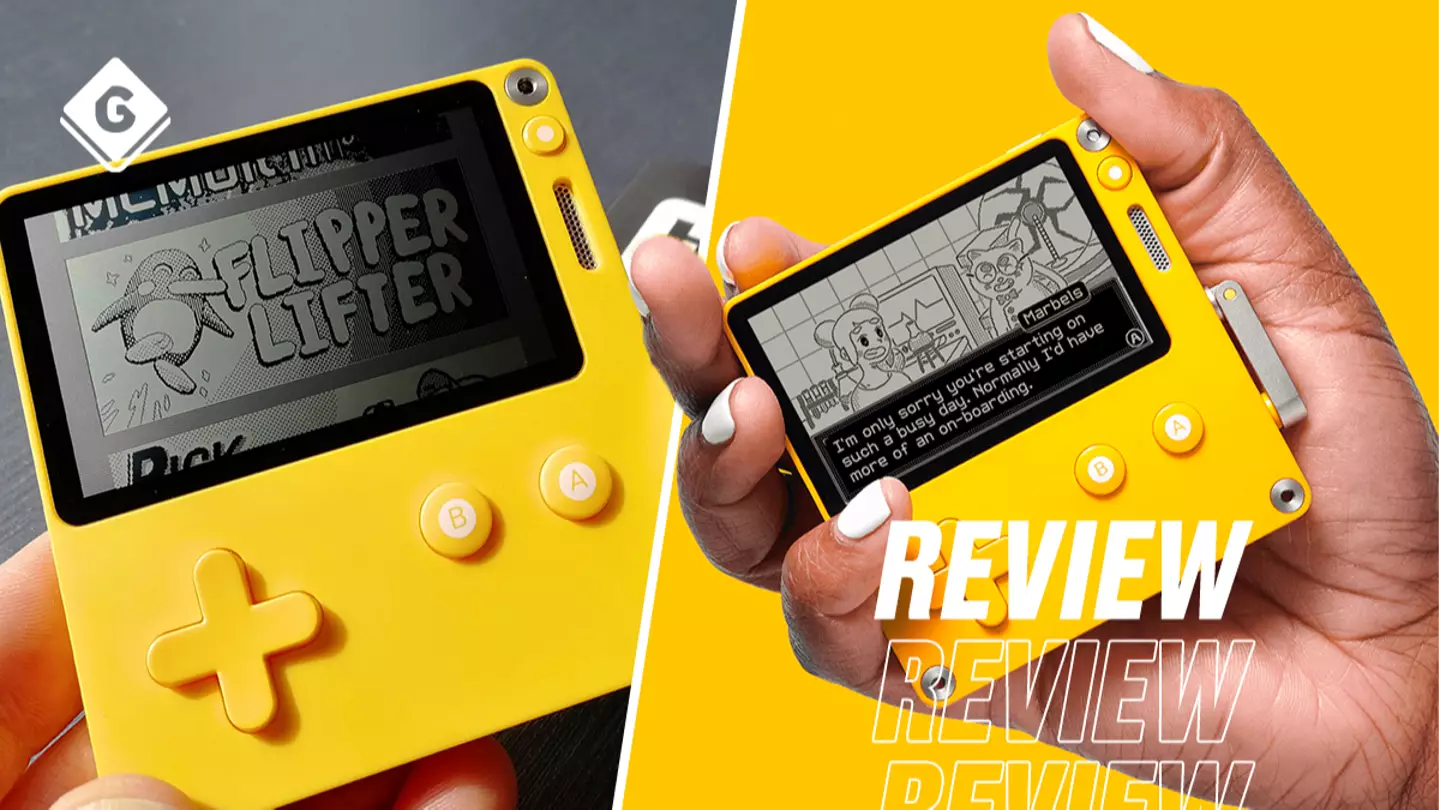
“Have fun!” These are the words that greet you when you slide the attractively minimalist packaging for the Playdate open. There’s the handheld console itself – almost too tiny, exceptionally cute, and so very yellow – and beside it, a cardboard sleeve containing the USB charge lead for the device. “Have fun!” it announces, it commands, in bold black lettering on a white speech bubble. Y’know what, I will, thanks.
If there’s one word that’s really defined video gaming in the last 15 years, it’s “escapism”. We all carry the weight of the world around with us in our smartphones, the worst headlines beamed directly to our pockets 24/7. We consume media with a ravenousness that previous generations never did, their news, their entertainment, their content controlled by the turning of a tap they never had a hand on. We can access whatever we want, whenever we want, and it’s overwhelming. It’s too much. And so video games have, for many, become the salve, the calm, the escapism. Open worlds have grown, visuals have creeped closer to the best of the reality around us. Stories have evolved and virtual characters become beloved. There are worse places aplenty to escape to.
See the Playdate in action in the video below
But it used to be the fun that we sought above all else, the driving force that we fired up our consoles for. Which absolutely isn’t to say that video games are not fun today, or that gaming isn’t in the greatest shape it’s ever been – I may get nostalgic for the 16-bit era from time to time, but I’m not so naïve to not realise this, right now, is the most golden any gaming age has ever been. But the Super Nintendo, the Mega Drive, the PlayStation, the Game Boy: these and so many systems like them were toys, devices of the purest pleasure, luxurious breaks from the grind of homework or overtime. Yes, they offered escape, but not in the sense of reclusion; their basic (by modern standards) presentation could prove enveloping, but there was little in the way of second lives to retreat into after the everyday served up its latest horrors. They were playthings, not platforms of existence where anyone could spend the majority of their waking, non-working hours. (Not that we didn’t try.)
Advert
The Playdate is a plaything, and no mistake. In a medium defined almost exclusively by keeping up with technological trends and cutting-edge components, it refreshingly says: no. That’s not for us. We’re (little, yellow) different (I see you, Wayne's World fans). The product of a collaboration between US studio Panic, the publisher of Untitled Goose Game and Firewatch, and Swedish electronics company Teenage Engineering, makers of the OP-1 synthesizer, the Playdate isn’t concerned with rivalling the Switch for a chunky share of the handheld market, nor is it aiming to fill the void left behind by the PlayStation Vita. This is assuredly something else from the norm. A return to basics, in a way, with its button layout: a nicely clicky D-pad, lightly convex A and B inputs, and a multi-purpose menu button that will take you back home from a game, adjust the volume, and access other settings. But it does offer something new, too. It’s right there, on the side, weird but immediately recognisable and understandable. A crank.
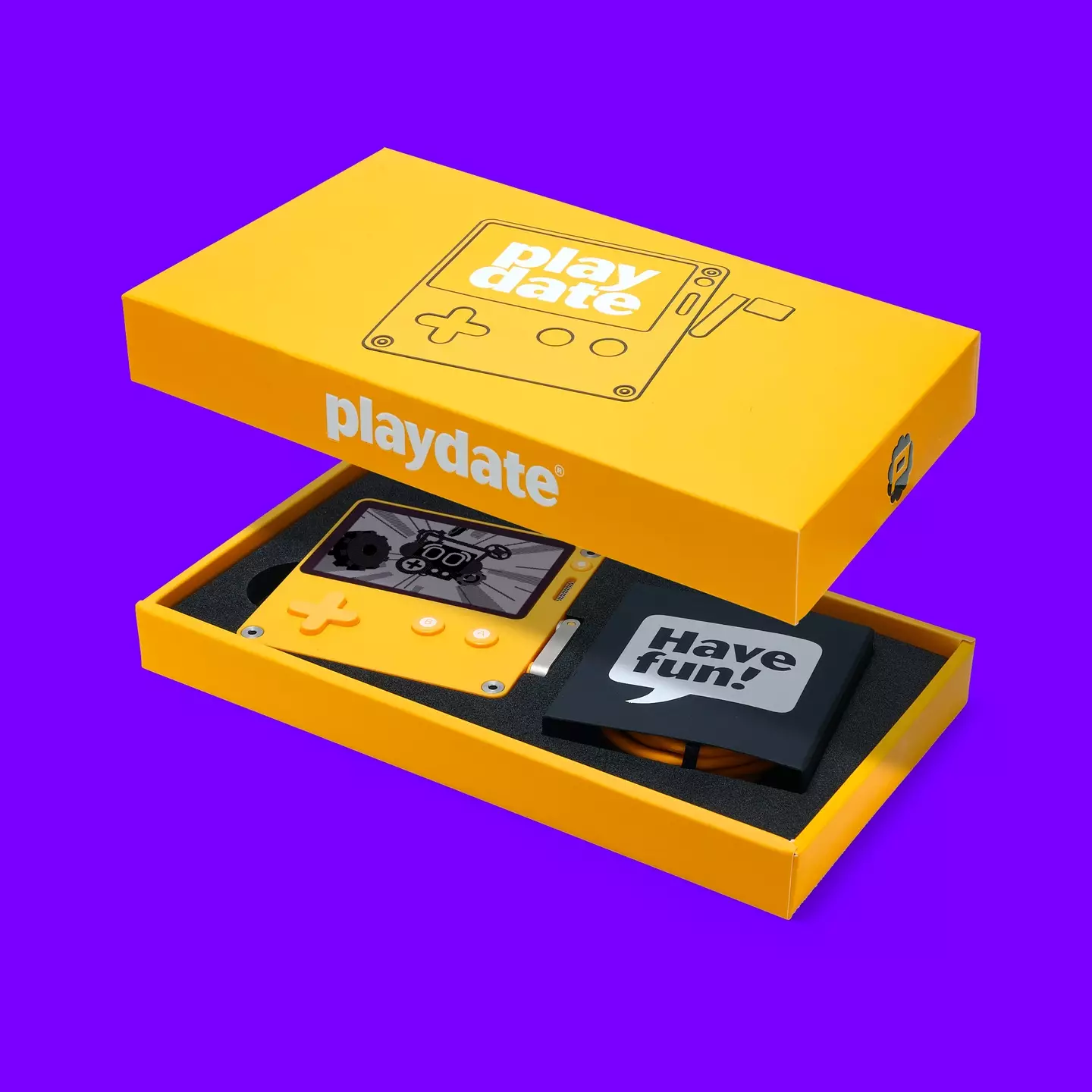
How the crank is used varies from game to game, but it is almost always used. Not every game developed for the Playdate – and I will get into them properly, in just a moment – has to implement the crank, but it feels a shame if it doesn’t. It might control a character’s movement, the stirring or crushing of ingredients to make a potion, the steering of a spaceship or the winching of a hotel lift. It never feels shoehorned – it’s clear that the Playdate’s first wave of games have been created around this interface, rather than forcing its analogue rotation into a scheme that’d be fine without it. It doesn’t exactly tuck away neatly but its handle (is the end piece a handle? I guess so?) ‘docks’ inside the unit pleasantly enough, and some games give it a cheerful audio acknowledgement when it’s removed or returned, which is just as satisfying as the Switch’s Joy-Con in-and-out click.
Elsewhere on the Playdate, the bright yellow (almost perfect) square, measuring less than 10cm by 10cm, features a loud-enough monotone speaker, a 3.5mm stereo headphone port, USB-C power input, and a small top-mounted button that puts the device to sleep, at which point it’ll display the time, or powers it off completely if held. It supports WiFi – essential for updates and downloading its games onto its 4GB of flash memory – and Bluetooth, and its battery when fully charged can support several hours of play or up to two weeks of time keeping on a desktop of beside your bed. (A dock for it, available separately, turns it into a kind of alarm clock/stereo Bluetooth speaker combo… and it has a pen/pencil holder, obviously).
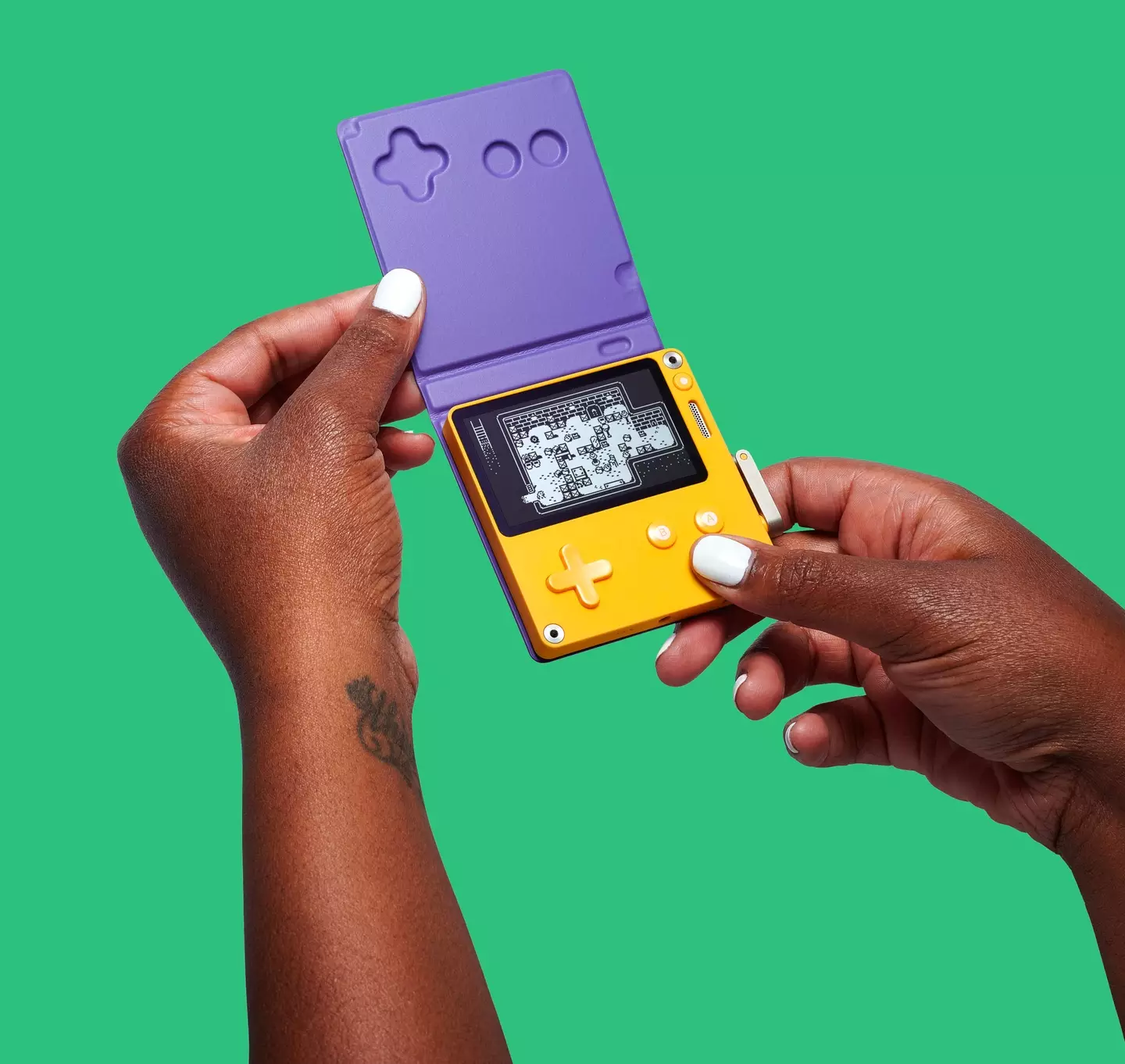
The Playdate also has an accelerometer, which some games put to use (I mean, how else would you pour that potion from earlier?), and its screen – while 1-bit greyscale and with no backlight – is remarkably crisp and clear. Its 400-by-240 pixels size allows for plenty enough detail – for comparison with other monochrome handhelds, the original Game Boy DMG screen measured 160 by 144, the Tiger game.com 200 by 160, and the Watara Supervision 160 by 160. Even going backwards, we've come a long way. The lack of a backlight isn’t a problem most of the time, but when there’s a lot of movement on screen low-level ambient lighting can cause issues, and the angle at which you hold the device can matter, too – if it doesn’t catch the light just right, you can basically be staring at what seems to be a blank screen.
Advert
Comfort can also be compromised by certain layouts where you’re asked to use either the A or B button with the crank. And due to the very small size of the Playdate, and its near complete disregard for ergonomics (did that NES pad teach us nothing?), long sessions can leave hands cramped and aching. But this is a device that most users won’t be putting through the review-period paces my unit's endured, with hours at a time spent hunched over its attractions. It’s far better as a handheld to reach for when you’ve 10 or 15 minutes to kill, waiting for a bus to arrive or a pizza to bake. Of its initial season of 24 games – released in pairs across 12 weeks from the console’s launch, their price included in the cost of the console – many are score-chase affairs, the goal being to beat your own points total and, eventually, those on worldwide leaderboards. And several of them are very enjoyable for such brief bursts.
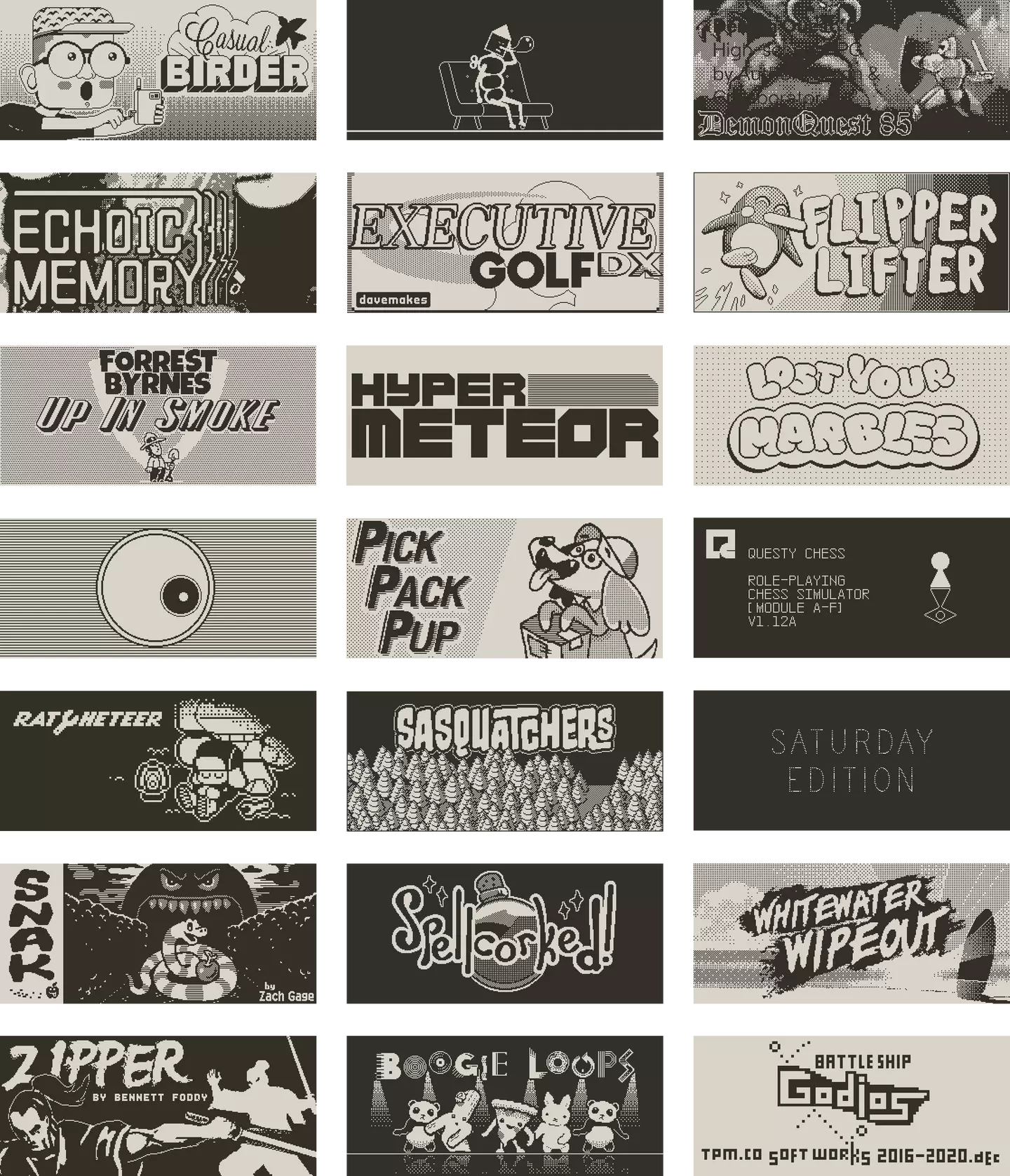
The first two games up for buyers are Whitewater Wipeout, a score-chase affair that feels a lot like the old surfing game in California Games; and Casual Birder, a sweet and surreal mini-RPG where the player takes photos of birds and disrupts the nuisance-makers of the local gang. The first uses the crank in cooperation with the D-pad to pull of surfboard tricks; the latter to focus in on the shot you want to take. It’s a little reminiscent of 2021’s TOEM, which you really should have played by now. Whitewater Wipeout is developed by Chuhai Labs (Cursed to Golf, Carve Snowboarding) while Casual Birder comes from Diego Garcia (Damaged in Transit, Swap Sword), so these are games born of experience and so very far from any feared shovelware standards. Other developers involved in the Playdate’s initial raft of titles include Katamari Damacy designer Keita Takahasi, who has a hand in the time-bending, um, dating sim(?) that is Crankin’s Time Travel Adventure; QWOP and Getting Over It… creator Bennett Foddy, who brings us the testing and tactical slash ‘em up Zipper; and Zach Gage (Ridiculous Fishing, TypeShift) whose Snak is basically the Nokia classic Snake given an injection of WTF-ness. The fruit eats you, now, just so you know.
My favourites amongst the 24 include Executive Golf DX, in which you play golf through an office building using the crank to view floors above and below, collecting power-ups to make clearing filing cabinets and PC monitors easier, while listening to music that veers from Oxenfree-like creepiness to Coffee Talk-style chill. I love Flipper Lifter, in which you move penguins from floor to floor using a creaking elevator in an ever-growing hotel building, while their patience ebbs away and a timer ticks down to zero – again, it’s a score-chase sort of thing. Inventory Hero is a really interesting RPG-lite in which your only interaction as your character auto-battles their way forward is to manage the stuff they pick up: food can be consumed to restore health, new equipment thrown on to increase stats, and bunnies, oh so many bunnies… they need getting rid of ASAP. Goddamn, those bunnies. Questy Chess is a neat little game of logic (and trial and error) where you control a pawn using traditional chess moves on a very untraditional board, altering the environment and defeating other pieces to proceed successfully.
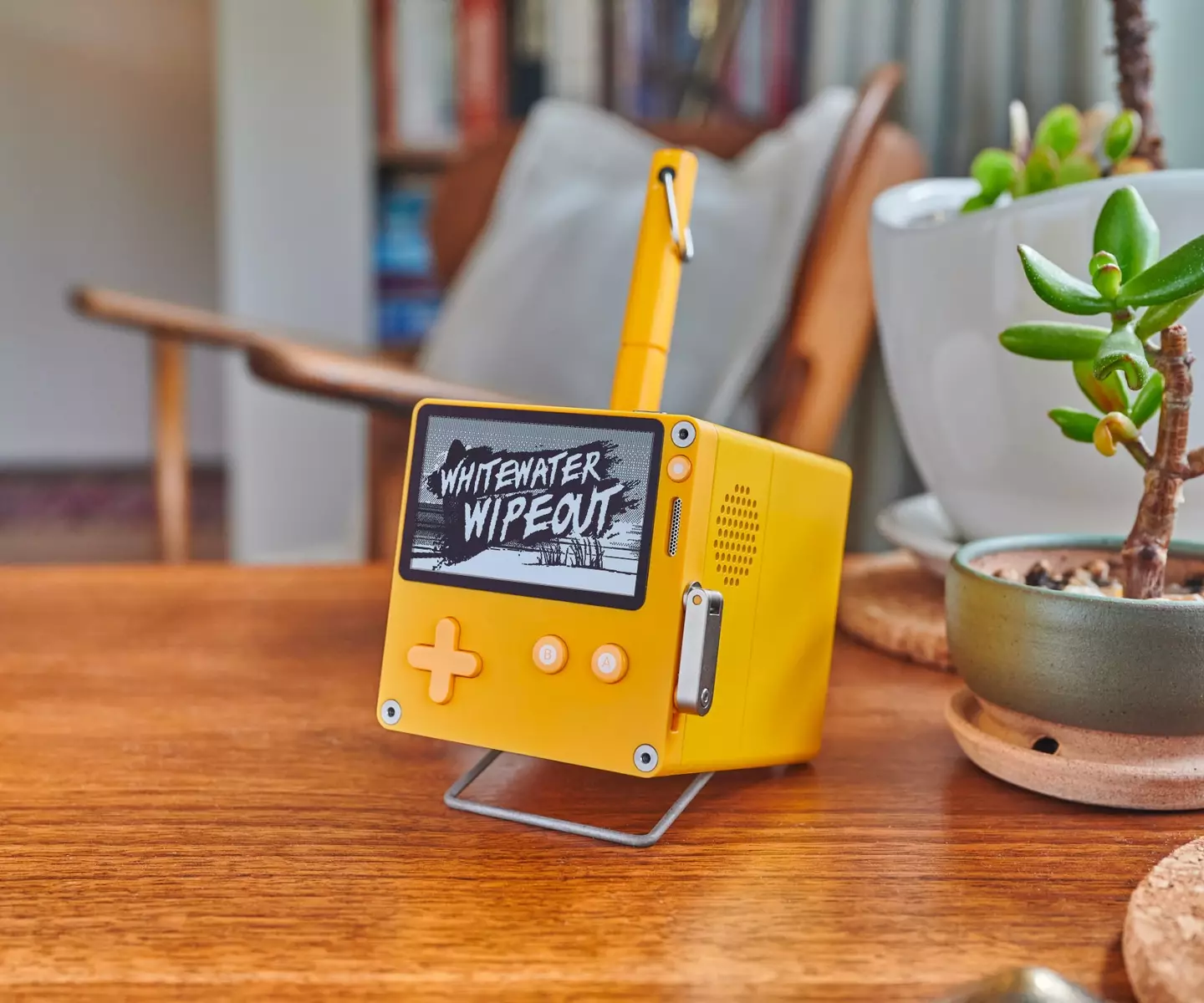
The Playdate autosaves your progress in games that aren’t about achieving a certain score, when you need to tap out for a bit, and naturally saves can be reset whenever you want, although multiple files aren't offered. I’ll leave the other games and software out of these words, because some surprise is nice, right? But for the most part they’re all a good time – a fun time – and I’m already looking forward to seeing what future Playdate developers come up with. Papers, Please and Return of the Obra Dinn designer Lucas Pope will be bringing Mars After Midnight to the console, while Rokashi’s Faraway Fairway promises to be a golf game with a meditative twist, which I am very here for.
Advert
What every one of these games really resonates with is the feeling that the creators behind them enjoyed the process, that the Playdate gave them a chance to experiment, to be original, and they grabbed the opportunity eagerly. There’s a huge amount of happiness that comes through. Each game is as much a celebration of this individual platform’s uniqueness as it is gaming as a medium that can push itself beyond consumer trends when it wants to, stepping around the marketing spiel of frame rates and ray tracing, or however many Ks a new console can spit out for your eyeballs. What’s more, anyone who picks up a Playdate gets access to Pulp, a browser-based game creation tool. Whatever you make on there, you can transfer to your Playdate to play, and then share with your Playdate-owning pals. Sadly I've not had time to test it, not that I'd have come up with anything of note, but it’ll be fascinating to see if any incredible developers of the future begin their journey with Pulp and the Playdate.
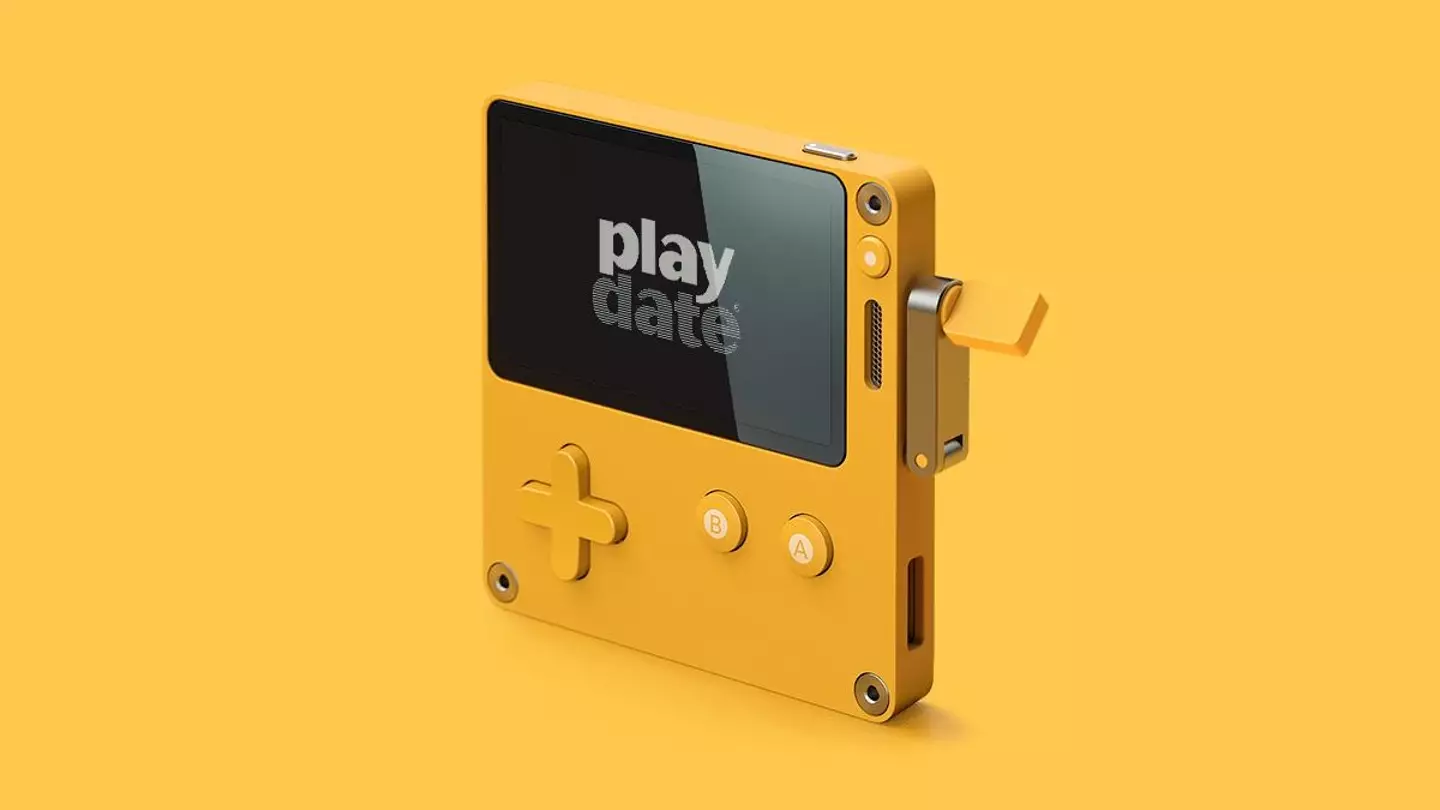
“Have fun,” then. Two simple words so regularly tossed away without any real meaning behind them. But the Playdate’s message is actually fairly profound amid the supposed USPs of so many other gaming brands, and I hope it finds enough of an audience to keep on adding fresh software for a while. This is a delicious way to make yourself smile, to see something different, to play a game or two that aren’t built to contemporary conventions, to milk you for microtransactions or to appease shareholders. It's self-contained, unquestionably stylish, and just a little bit special to be honest. Heed its advice the next time you go looking for a brief respite from the here and now – you’ll feel a lot better, afterwards.
The Playdate can be ordered from its official website for $179, but delivery for new orders will now be in 2023 due to demand. The Playdate’s Stereo Dock and magnetic protective cover are sold separately from the console itself. Review unit supplied by Panic. Now excuse me, I have penguins to see to who simply wouldn’t be seen dead using stairs.
Featured Image Credit: Playdate, the authorTopics: Indie Games
